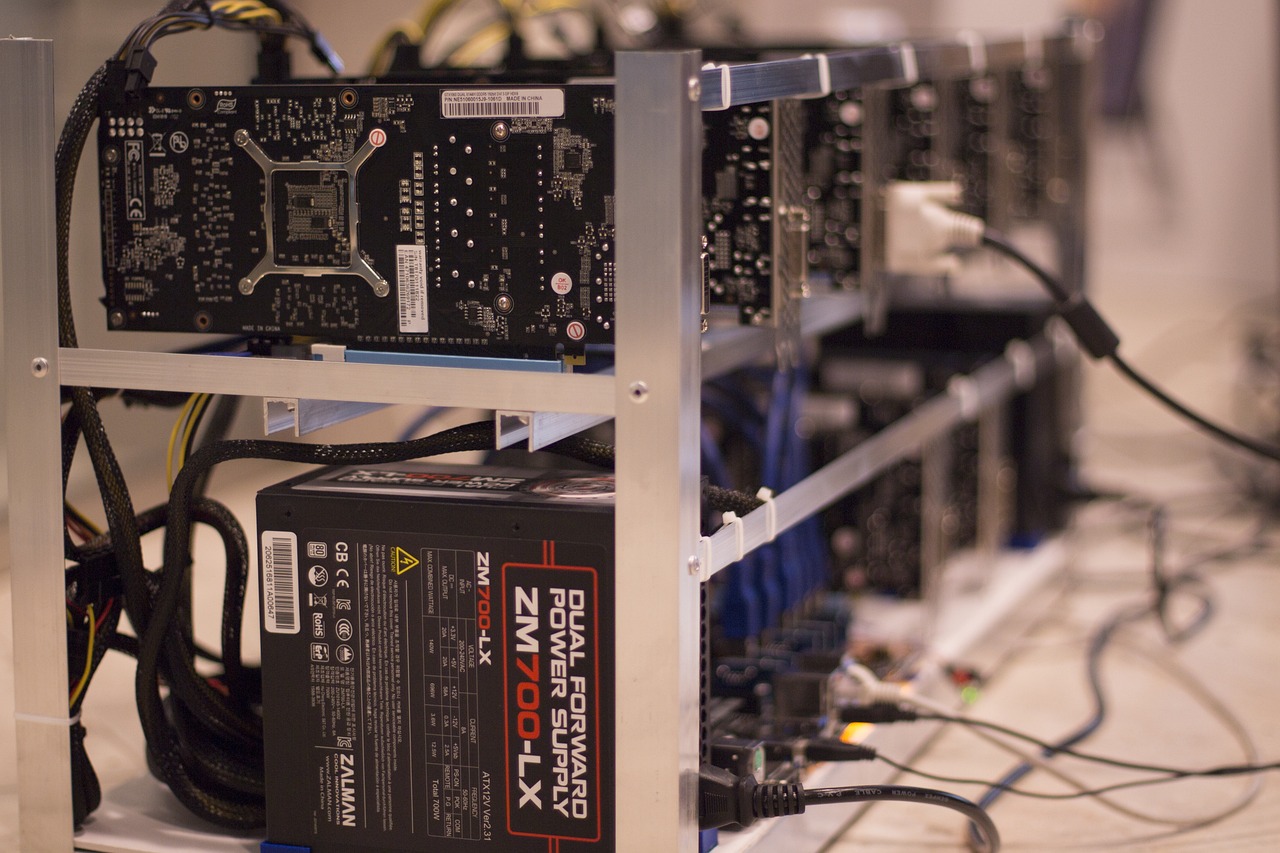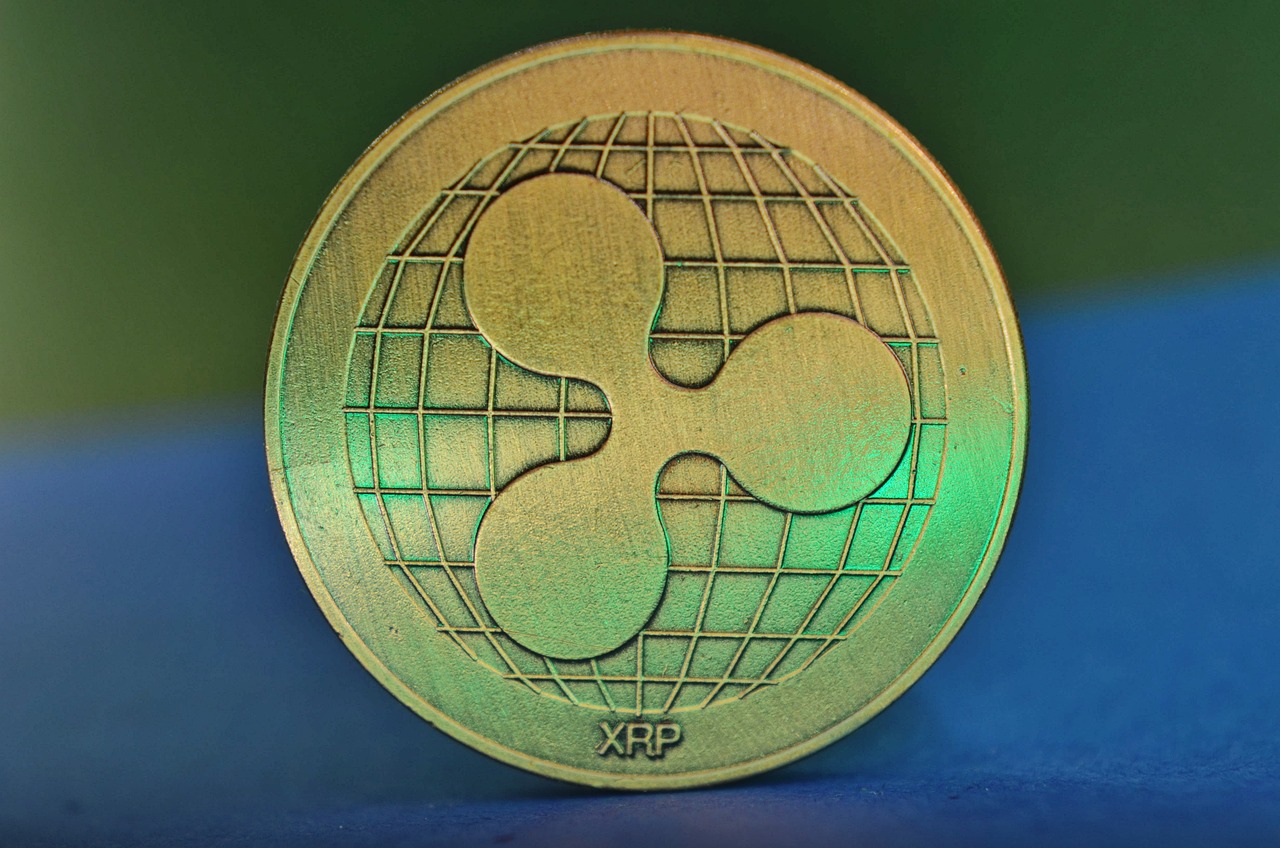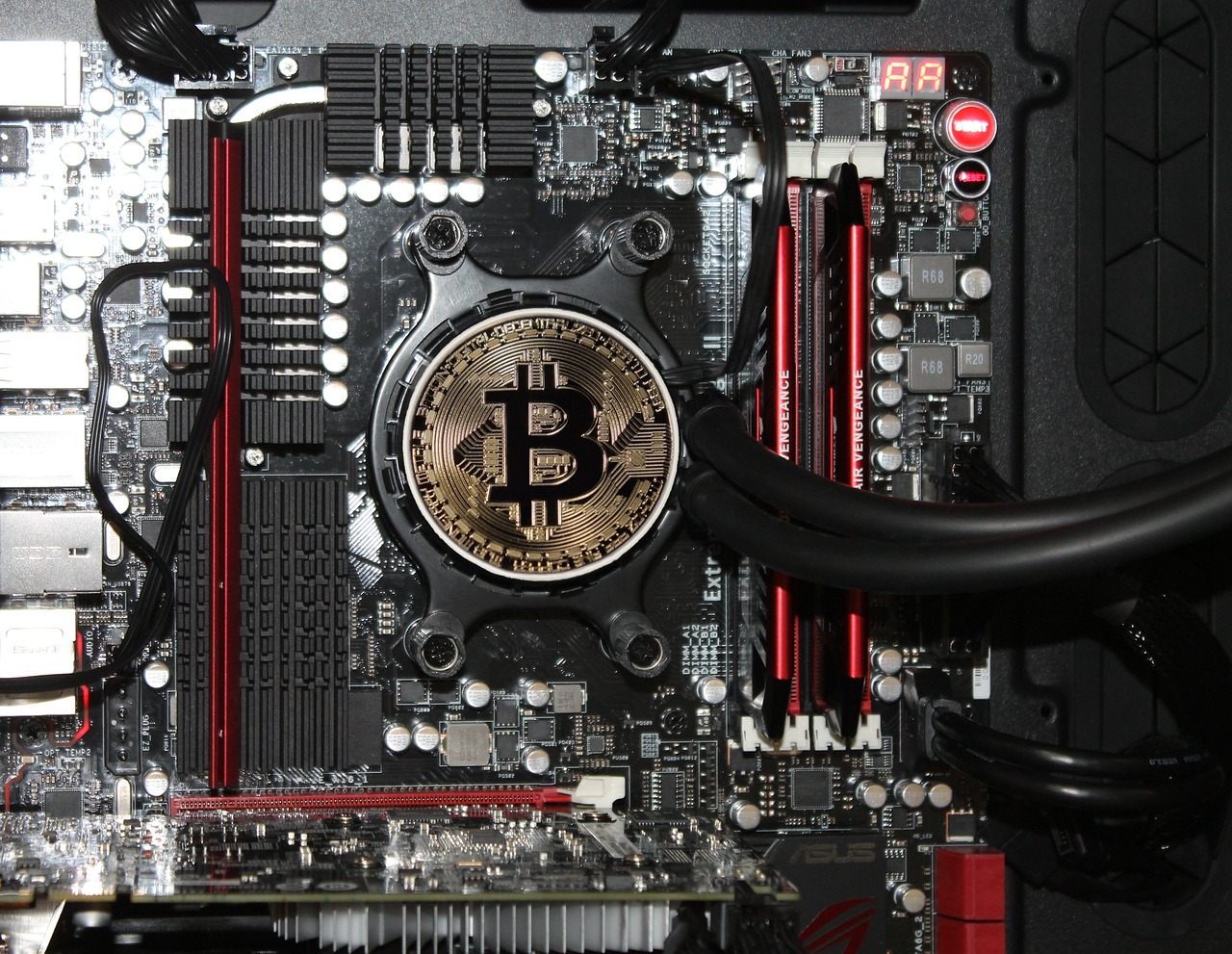How Blockchain is Changing the Way We Think About Identity
In today's digital landscape, the concept of identity is evolving faster than ever before. Gone are the days when we relied solely on physical documents to prove who we are. With the rise of the internet, social media, and online transactions, our digital identity has become a crucial part of our lives. But what if there was a way to make this identity more secure, transparent, and under our control? Enter blockchain technology. This revolutionary technology is not just a buzzword; it's reshaping how we think about identity management in profound ways.
Imagine a world where you have complete control over your personal information. You decide who can access your data and when. This is the promise of blockchain technology. By utilizing a decentralized ledger, blockchain offers a secure and transparent method for managing identities. It eliminates the need for central authorities, such as banks or governments, to validate who we are. Instead, individuals can take charge of their own identities, granting access to their data only when necessary. This shift is akin to moving from a traditional bank where you have to ask for permission to withdraw your money, to a personal vault where you hold the keys and control your assets.
One of the most exciting aspects of blockchain is its ability to enhance security. In a world where data breaches and identity theft are rampant, the decentralized nature of blockchain minimizes single points of failure. With traditional systems, a hacker only needs to breach one database to access millions of identities. However, with blockchain, the information is distributed across numerous nodes, making it incredibly difficult for unauthorized access to occur. This level of security is not just a nice-to-have; it’s essential in protecting sensitive information and maintaining trust in digital interactions.
Moreover, the implementation of smart contracts within blockchain technology automates and streamlines identity verification processes. Think of smart contracts as self-executing contracts with the terms of the agreement directly written into code. They remove the need for intermediaries, making transactions faster and more efficient. For instance, when you apply for a loan, instead of waiting days for a bank to verify your identity and credit history, a smart contract can instantly validate your credentials against the blockchain, speeding up the entire process.
However, while the potential of blockchain in identity management is enormous, it is not without challenges. Issues like scalability, regulatory hurdles, and the need for widespread adoption pose significant obstacles. For blockchain to truly revolutionize identity management, it must be embraced by various sectors, including finance, healthcare, and government. This widespread integration will require collaboration among stakeholders to create standardized practices and regulations that ensure security while fostering innovation.
As we look to the future, the integration of blockchain in identity management could lead to systems that are not only more secure but also more user-centric. Imagine a scenario where you can seamlessly verify your identity across different platforms without having to repeatedly fill out forms or provide the same information. This would not only enhance user experience but also significantly reduce the risk of fraud and identity theft.
In conclusion, blockchain technology is not just changing the way we think about identity; it is fundamentally transforming it. As we continue to navigate the digital age, embracing this technology could lead to a future where individuals have greater control over their personal information, leading to enhanced security and trust in our digital interactions. The journey is just beginning, and the possibilities are endless.
- What is blockchain technology?
Blockchain is a decentralized ledger technology that allows for secure and transparent record-keeping. - How does blockchain enhance identity security?
By decentralizing data storage, blockchain minimizes the risk of data breaches and unauthorized access. - What are smart contracts?
Smart contracts are self-executing contracts with the terms directly written into code, automating processes like identity verification. - What challenges does blockchain face in identity management?
Scalability, regulatory concerns, and the need for widespread adoption are significant challenges for blockchain technology. - How can blockchain impact various sectors?
Blockchain has the potential to improve security and efficiency in sectors like finance, healthcare, and government.

The Concept of Digital Identity
Understanding digital identity is crucial in today's hyper-connected world. It encompasses how individuals present themselves online, including their personal information, credentials, and reputation. Imagine your digital identity as a virtual avatar that carries not just your name but also your history, preferences, and interactions. Just as we curate our physical appearances and personal brand in the real world, we must do the same in the digital realm. This reshaping of interactions is profound, as it influences everything from social networking to e-commerce.
In essence, digital identity is not merely about having an online presence; it's about how that presence is perceived and managed. It involves a complex interplay of various elements:
- Personal Information: This includes your name, age, address, and any other details that define you.
- Credentials: These are the qualifications or certifications you hold, such as degrees or professional licenses.
- Reputation: How others view you online, influenced by reviews, social media interactions, and professional endorsements.
As we navigate the digital landscape, our identities are constantly being shaped by the information we share and the interactions we engage in. Each click, like, and comment contributes to the tapestry of our online persona. This has led to a growing recognition of the importance of managing our digital identities carefully.
Consider the implications of a compromised digital identity. If someone gains unauthorized access to your personal information, they can impersonate you, leading to identity theft, fraud, and a host of other issues. In a world where our lives are increasingly intertwined with technology, understanding and safeguarding our digital identities is paramount.
Moreover, the rise of social media platforms has made it easier than ever to curate our identities. We can choose what to share and what to keep private, but this also raises questions about authenticity. Are we presenting our true selves, or are we merely curating a version of ourselves that we think will be more appealing? This tension between authenticity and presentation is a central theme in the discussion of digital identity.
As we look to the future, the concept of digital identity is evolving. With advancements in technology, particularly blockchain, there is potential for more secure and user-centric identity management systems. The idea of a self-sovereign identity, where individuals have greater control over their data and how it is shared, is gaining traction. This could revolutionize how we think about and manage our digital identities.
In summary, digital identity is a multifaceted concept that plays a critical role in our interactions and transactions in the digital world. It is essential to understand its components, implications, and the evolving landscape as we move forward into an increasingly digital future.

Blockchain Technology Explained
When we talk about blockchain technology, we're diving into a revolutionary concept that goes beyond just cryptocurrencies. At its core, blockchain is a decentralized ledger system that records transactions across many computers in such a way that the registered transactions cannot be altered retroactively. This characteristic of immutability is what makes blockchain so appealing for identity management. Imagine a digital notebook that everyone can see but no one can erase or change. This transparency not only builds trust but also enhances security, making it a game-changer in how we think about managing our identities online.
One of the most significant aspects of blockchain is its decentralization. Unlike traditional systems where a central authority holds all the power and data, blockchain distributes this control across a network. This means that no single entity can manipulate or control the data, reducing the risk of fraud and unauthorized access. To visualize this, think of a community library where every member has a copy of the same book. If someone tries to change the text in one book, it won’t affect the others, preserving the integrity of the information.
Moreover, blockchain technology employs complex cryptographic techniques to secure data. Each transaction is encrypted and linked to the previous one, forming a chain of blocks. This ensures that even if someone were to gain access to the network, they would find it nearly impossible to alter the information without detection. Here’s a simple breakdown of how this works:
| Component | Description |
|---|---|
| Block | A collection of data (transactions) that is recorded and stored. |
| Chain | The sequential linking of blocks to form a continuous ledger. |
| Node | A participant in the blockchain network that stores a copy of the entire blockchain. |
| Consensus Mechanism | A method used to agree upon the validity of transactions (e.g., Proof of Work, Proof of Stake). |
Another exciting feature of blockchain technology is the use of smart contracts. These are self-executing contracts with the terms of the agreement directly written into code. They automatically enforce and execute the terms when predetermined conditions are met, eliminating the need for intermediaries. Imagine having a vending machine that dispenses a drink as soon as you insert the correct amount of money. In the context of identity verification, smart contracts can automate processes such as verifying a user's identity without human intervention, making transactions faster and more efficient.
Lastly, the concept of self-sovereign identity is gaining traction. This approach allows individuals to have full control over their personal information, deciding when and how to share it. Instead of relying on third parties to validate identities, users can present their credentials directly from their blockchain-based identity. This not only enhances privacy but also empowers individuals, giving them the autonomy to manage their own digital identities in a secure manner.

Decentralization and Security
When we talk about decentralization in the context of blockchain, we’re diving into a revolutionary concept that fundamentally alters how we think about security. Traditionally, our identity data has been stored in centralized databases, which are often vulnerable to hacks, data breaches, and unauthorized access. Imagine a single vault holding the keys to your identity—if that vault is compromised, so is your entire digital life. However, blockchain flips this narrative on its head. By distributing data across a network of computers, it creates a system where there is no single point of failure. This means that even if one part of the network is attacked, the rest remains intact, safeguarding your identity.
With blockchain, each transaction or update to your identity is recorded in a way that is both transparent and immutable. This means that once your data is added to the blockchain, it cannot be altered or deleted without consensus from the network. This feature is akin to having a permanent, unchangeable record of your identity that is visible to you and only you, while still being verifiable by others when necessary. The result? A significantly lower risk of identity theft and fraud.
Moreover, decentralization enhances privacy. In a centralized system, your data is often shared across multiple platforms, increasing the chances of exposure. On the other hand, blockchain allows for self-sovereign identity, where you control who has access to your information. You can choose to share only what is necessary—like a digital ID that reveals just enough to prove your identity without giving away your entire life story. This selective sharing is crucial in today’s world, where data privacy is paramount.
However, it’s important to note that while decentralization offers these security benefits, it is not without challenges. The technology behind blockchain is complex, and for many, understanding how to navigate this new landscape can be daunting. Additionally, the implementation of decentralized identity solutions requires widespread adoption and education. But once these hurdles are overcome, the potential for enhanced security in identity management is immense.
In summary, decentralization brings a new level of security to identity management by eliminating single points of failure, ensuring data integrity, and empowering individuals with control over their personal information. As we continue to explore the possibilities of blockchain, we are likely to see more innovative solutions that prioritize security and privacy in our digital identities.
- What is decentralization in blockchain?
Decentralization refers to the distribution of data across a network, eliminating a central authority and reducing the risk of data breaches. - How does blockchain enhance security?
Blockchain enhances security by providing an immutable record of transactions and eliminating single points of failure. - What is self-sovereign identity?
Self-sovereign identity allows individuals to control their personal information and share it selectively with others. - What are the challenges of implementing blockchain for identity management?
Challenges include the complexity of the technology, the need for widespread adoption, and regulatory concerns.

Smart Contracts in Identity Verification
Smart contracts are revolutionizing the way we think about identity verification. Imagine a world where you don’t have to fill out endless forms or wait for days to prove your identity. With smart contracts, this dream is becoming a reality. These self-executing contracts with the terms of the agreement directly written into code can automate and streamline the identity verification process. By eliminating the need for intermediaries, smart contracts not only speed up the verification process but also enhance security and reduce costs.
So, how do smart contracts work in identity verification? Let’s break it down. When you need to verify your identity, a smart contract is triggered. This contract accesses your credentials stored on the blockchain, checks them against the required criteria, and executes the verification without any human intervention. It’s like having a digital bouncer who only lets the right people in, ensuring that your personal data is safe and sound.
One of the most exciting aspects of smart contracts in identity verification is their ability to ensure compliance with regulations. They can be programmed to automatically update themselves in response to regulatory changes, meaning that organizations can stay compliant without the constant need for manual updates. This not only saves time but also minimizes the risk of human error, which can lead to costly penalties.
Moreover, the transparency of blockchain technology means that every transaction involving identity verification is recorded and immutable. This creates a clear audit trail that can be invaluable for organizations needing to prove compliance or investigate fraud. Imagine the peace of mind that comes from knowing that your identity verification process is not only efficient but also secure and accountable.
However, while the benefits of smart contracts in identity verification are significant, there are still challenges to address. For instance, the initial setup can be complex and requires a deep understanding of both blockchain technology and legal frameworks. Additionally, widespread adoption is necessary to fully realize the potential of these contracts. As more organizations begin to implement smart contracts, we can expect to see a shift towards a more secure and efficient identity verification landscape.
In summary, smart contracts are paving the way for a new era in identity verification. They offer a blend of speed, security, and compliance that traditional methods simply cannot match. As we continue to explore the potential of blockchain technology, it’s clear that smart contracts will play a pivotal role in shaping the future of how we verify identities.
- What are smart contracts? Smart contracts are self-executing contracts with the terms of the agreement directly written into code, allowing for automated processes without intermediaries.
- How do smart contracts enhance security in identity verification? They provide a secure, tamper-proof way to verify identities by storing credentials on a decentralized blockchain.
- Can smart contracts ensure compliance with regulations? Yes, they can be programmed to automatically adapt to regulatory changes, ensuring ongoing compliance.
- What challenges do smart contracts face in identity verification? Initial setup complexity and the need for widespread adoption are significant challenges to overcome.

Self-Sovereign Identity
Self-sovereign identity (SSI) is a revolutionary concept that places the power of personal data back into the hands of individuals. Imagine a world where you, and only you, control your digital identity—no more relying on third-party services to manage your personal information. This paradigm shift is akin to owning the keys to your own castle; with SSI, you decide who enters and who stays out.
At its core, self-sovereign identity utilizes blockchain technology to create a secure and decentralized framework for managing personal data. Individuals can create digital identities that are verifiable and tamper-proof, allowing them to share information selectively with trusted parties. This not only enhances privacy but also reduces the risk of identity theft and fraud, which are rampant in today's interconnected digital landscape.
One of the most exciting aspects of SSI is that it empowers users to curate their own identity. For instance, when applying for a job or accessing healthcare services, you can choose to share only the necessary information without disclosing everything about yourself. This selective sharing is a game-changer, as it minimizes the amount of personal data that gets circulated and stored by various organizations, ultimately reducing the potential for misuse.
However, the implementation of self-sovereign identity is not without its challenges. Users must have access to the necessary technology and be educated on how to manage their digital identities effectively. Moreover, organizations must adapt their systems to recognize and trust these decentralized identities, which may require significant changes in infrastructure and policy.
To illustrate the potential of self-sovereign identity, consider the following table that outlines its key benefits compared to traditional identity management systems:
| Feature | Self-Sovereign Identity | Traditional Identity Management |
|---|---|---|
| Control | Users have full control over their data | Control lies with third-party organizations |
| Privacy | Selective sharing of information | Full disclosure often required |
| Security | Decentralized and tamper-proof | Centralized databases are vulnerable to hacks |
| Cost | Potentially lower costs for verification | Higher costs due to intermediaries |
In summary, self-sovereign identity represents a significant leap forward in how we approach identity management. By leveraging the power of blockchain, individuals can reclaim their privacy and security while simplifying the way they interact with the digital world. As we continue to navigate this evolving landscape, it is essential for both users and organizations to embrace this change and work towards a more secure and user-centric future.
- What is self-sovereign identity?
Self-sovereign identity is a concept that allows individuals to control their own digital identities without relying on third-party services. - How does blockchain enhance self-sovereign identity?
Blockchain provides a secure and decentralized framework for managing personal data, making identities verifiable and tamper-proof. - What are the benefits of self-sovereign identity?
Benefits include increased privacy, enhanced security, selective sharing of information, and potentially lower costs for verification. - What challenges does self-sovereign identity face?
Challenges include the need for user education, access to technology, and the adaptation of existing systems by organizations.

Challenges of Blockchain in Identity Management
While blockchain technology offers a revolutionary approach to identity management, it is not without its challenges. One of the most significant hurdles is scalability. As more users and transactions are added to the blockchain, the network can become congested, leading to slower processing times. This is particularly concerning when we consider the vast number of identities that need to be managed in a global context. Imagine trying to fit a thousand people into a room designed for just a hundred; the chaos that ensues is akin to the issues blockchain faces with scalability.
Another pressing issue is the regulatory landscape. Governments around the world are still grappling with how to regulate blockchain technology, particularly in the realm of identity management. The lack of clear regulations can create uncertainty for businesses looking to adopt blockchain solutions. Without a solid framework, organizations may hesitate to invest in blockchain technologies, fearing potential legal repercussions. This uncertainty can stifle innovation and slow down the adoption process.
Moreover, the need for widespread adoption poses a significant challenge. For blockchain-based identity management systems to be effective, they must be embraced by a large number of organizations and users. This requires a cultural shift in how we view identity and trust in the digital world. Picture a community where everyone agrees to use a new form of currency; it only works if everyone is on board. The same principle applies to blockchain identity solutions. If only a handful of users adopt the technology, its effectiveness diminishes.
Additionally, the issue of user education cannot be overlooked. Many individuals still have a limited understanding of blockchain technology and its benefits. This lack of knowledge can lead to skepticism and resistance to adopting new systems. To combat this, educational initiatives must be implemented to inform users about the advantages of blockchain for identity management. It's essential to bridge the knowledge gap to foster a more accepting environment for these innovations.
Finally, there are security concerns that must be addressed. While blockchain is inherently secure due to its decentralized nature, vulnerabilities can still exist, particularly if users do not take proper precautions. For instance, if an individual loses access to their private keys, they may permanently lose their identity data. Therefore, user training and robust security measures are crucial to mitigate these risks.
In summary, while blockchain technology holds immense potential for transforming identity management, it faces significant challenges that must be addressed. From scalability and regulatory issues to the need for widespread adoption and user education, stakeholders must work collaboratively to overcome these hurdles. Only then can we fully realize the benefits of blockchain in managing our identities in a secure and efficient manner.
- What is blockchain technology?
Blockchain technology is a decentralized ledger system that records transactions across multiple computers, ensuring transparency and security. - How does blockchain enhance identity management?
Blockchain enhances identity management by providing a secure, immutable platform where individuals can control their personal data. - What are smart contracts?
Smart contracts are self-executing contracts with the terms of the agreement directly written into code, automating processes like identity verification. - What challenges does blockchain face in identity management?
Challenges include scalability, regulatory uncertainties, the need for widespread adoption, user education, and security concerns.

Real-World Applications of Blockchain Identity
When we think about the potential of blockchain technology, it’s easy to get lost in the technical jargon and complex theories. However, the real magic happens when we see how it’s being applied in the real world, particularly in the realm of identity management. Imagine a world where your identity is not just a collection of documents but a secure, verifiable digital asset that you control. This is not just a dream; it’s becoming a reality across various sectors. Let’s dive into some of the most exciting applications of blockchain identity.
One of the most significant areas where blockchain is making waves is in the financial sector. Financial institutions are increasingly adopting blockchain technology to enhance their customer onboarding processes. Traditionally, Know Your Customer (KYC) compliance has been a cumbersome and time-consuming task, often requiring multiple documents and verification steps. However, with blockchain, institutions can streamline this process. By creating a secure, immutable record of identity that can be easily accessed and verified, banks can reduce fraud, enhance security, and cut operational costs. Imagine walking into a bank and, instead of filling out endless forms, you simply provide a digital identity that has already been verified on the blockchain. It’s fast, efficient, and secure.
But it’s not just finance that’s benefiting from this technology. The healthcare industry is also exploring blockchain for identity management. Patient records are notoriously fragmented, leading to inefficiencies and potential breaches of privacy. With blockchain, healthcare providers can create a secure, decentralized system for storing and sharing patient data. This means that a patient’s medical history can be accessed by authorized personnel in real-time, ensuring that they receive the best care possible. Furthermore, blockchain can streamline consent processes, allowing patients to control who has access to their information. This level of security and privacy is a game-changer in an industry where trust is paramount.
Governments around the world are also recognizing the potential of blockchain for identity management. For instance, countries like Estonia have implemented blockchain technology to create a secure digital identity system for their citizens. This system allows residents to access a wide range of public services online, from voting to tax filing, all while maintaining the security and integrity of their personal information. As more governments look to digitize services, blockchain could become the backbone of secure identity management, making interactions between citizens and the state more efficient and transparent.
In summary, the applications of blockchain identity are vast and varied, impacting sectors from finance to healthcare and beyond. By providing a secure, decentralized way to manage identities, blockchain is not just changing how we think about identity; it’s revolutionizing it. However, as with any technology, there are challenges to overcome. The road ahead may be bumpy, but the potential benefits are too significant to ignore.
- What is blockchain identity?
Blockchain identity refers to the use of blockchain technology to create a secure, verifiable digital identity that individuals control.
- How does blockchain improve KYC processes?
Blockchain allows financial institutions to streamline KYC processes by creating an immutable record of identity that can be easily accessed and verified.
- Can blockchain enhance patient privacy in healthcare?
Yes, blockchain can provide a secure way to store and share patient records, allowing patients to control access to their information.
- Are there any challenges to using blockchain for identity management?
Yes, challenges include scalability, regulatory concerns, and the need for widespread adoption to realize its full potential.

Case Studies in Finance
When it comes to the world of finance, blockchain technology is not just a buzzword; it's a game-changer. Imagine a world where the cumbersome processes of customer onboarding and compliance checks are as simple as a click of a button. That’s exactly what several financial institutions are striving to achieve by integrating blockchain into their operations. One striking example is how banks are utilizing blockchain to enhance their Know Your Customer (KYC) procedures. Traditionally, KYC processes have been tedious and time-consuming, often requiring customers to provide the same information multiple times across different institutions. However, with blockchain, once a customer’s identity is verified, that information can be securely shared among authorized institutions, significantly reducing redundancy.
Furthermore, the transparency and immutability of blockchain mean that once data is entered, it cannot be altered without consensus from the network. This feature not only enhances security but also builds trust among customers, as they can be assured that their information is safe from tampering. For instance, a leading bank in the United States has reported a 30% reduction in operational costs related to KYC compliance since adopting blockchain technology. By streamlining the onboarding process, they have not only saved money but have also improved customer satisfaction, as clients can access services faster than ever before.
Another fascinating case study involves a consortium of banks that have come together to create a shared blockchain platform for processing cross-border payments. This initiative aims to eliminate the inefficiencies of traditional payment systems, which often involve multiple intermediaries, leading to delays and higher costs. By using blockchain, these banks can execute transactions directly, reducing the time taken from days to mere seconds. A recent pilot project demonstrated that using blockchain for cross-border payments resulted in a staggering 80% reduction in transaction fees compared to traditional methods. This not only benefits the banks but also translates to lower costs for customers.
Moreover, the use of smart contracts in these financial applications can automate many processes. For example, a bank may utilize smart contracts to automatically trigger payments once certain conditions are met, thus eliminating the need for manual intervention. This not only speeds up transactions but also reduces the risk of human error. Imagine a scenario where loans can be disbursed automatically upon meeting predefined criteria, ensuring that funds are released quickly and securely.
Despite these promising developments, it’s essential to acknowledge the challenges that come with implementing blockchain in finance. Issues such as regulatory compliance, the need for interoperability between different blockchain systems, and the general skepticism surrounding new technologies can pose hurdles. However, as more institutions recognize the benefits and begin to invest in blockchain solutions, we can expect to see a significant shift in how financial services operate.
In conclusion, the case studies in finance illustrate that blockchain is not just a theoretical concept; it is being actively used to solve real-world problems. As we move forward, it will be exciting to see how these innovations evolve and reshape the financial landscape, making it more efficient, secure, and customer-centric.
- What is blockchain technology?
Blockchain is a decentralized digital ledger that records transactions across many computers in a way that the registered transactions cannot be altered retroactively. - How does blockchain improve identity verification?
Blockchain enhances identity verification by providing a secure, immutable record of identities that can be shared among authorized parties without the need for intermediaries. - What are smart contracts?
Smart contracts are self-executing contracts with the terms of the agreement directly written into code, allowing for automatic execution when conditions are met. - What challenges does blockchain face in finance?
Challenges include regulatory compliance, scalability, interoperability between different systems, and the need for widespread adoption.

Healthcare Innovations
In the rapidly evolving landscape of healthcare, blockchain technology is emerging as a game changer, offering innovative solutions that not only enhance the security of patient data but also improve overall healthcare delivery. Imagine a world where your medical records are not just scattered across various hospitals and clinics, but are instead securely stored in a single, immutable ledger that you control. This is the promise of blockchain in healthcare.
One of the standout innovations is the ability to secure patient records. Traditionally, medical records can be vulnerable to breaches, leading to data theft and privacy violations. However, with blockchain, each patient's record can be encrypted and stored in a decentralized manner, making unauthorized access nearly impossible. This means that when you visit a new healthcare provider, they can access your complete medical history with your consent, ensuring that you receive personalized care without compromising your privacy.
Moreover, blockchain facilitates seamless consent management. Patients often find themselves inundated with forms and consent requests, which can lead to confusion and, at times, miscommunication. With blockchain, patients can grant and revoke access to their medical records at will, all tracked transparently on the blockchain. This not only empowers patients but also ensures that healthcare providers have the most accurate and up-to-date information available.
To illustrate the transformative potential of blockchain in healthcare, let’s consider a few key applications:
- Secure Sharing of Health Records: Blockchain allows for the secure sharing of health data among authorized parties, ensuring that sensitive information is only accessible to those who need it.
- Streamlined Drug Supply Chain: By tracking pharmaceuticals from manufacturer to patient, blockchain helps prevent counterfeit drugs from entering the market, ensuring patient safety.
- Clinical Trials and Research: Blockchain can be used to manage data from clinical trials, ensuring that results are tamper-proof and enhancing trust in research findings.
As we look to the future, the integration of blockchain in healthcare is not just a possibility; it’s becoming a necessity. With the increasing demand for data security and patient privacy, healthcare providers are recognizing that embracing this technology can lead to improved patient outcomes and operational efficiencies. The question isn’t whether blockchain will play a role in healthcare, but rather how quickly we can adapt to this revolutionary change.
- What is blockchain technology? Blockchain is a decentralized digital ledger that securely records transactions across multiple computers, ensuring that the information is immutable and transparent.
- How does blockchain improve patient privacy? By encrypting patient data and storing it on a decentralized network, blockchain minimizes the risk of data breaches and unauthorized access.
- Can blockchain be integrated into existing healthcare systems? Yes, many healthcare organizations are currently exploring ways to integrate blockchain with their existing systems to enhance security and efficiency.
- What are the challenges of implementing blockchain in healthcare? Some challenges include regulatory compliance, the need for industry-wide standards, and ensuring interoperability with current systems.

The Future of Identity with Blockchain
The future of identity management is poised for a **revolution**, thanks to the groundbreaking capabilities of blockchain technology. Imagine a world where your personal information is not just a collection of data points scattered across various platforms, but a **secure**, **self-managed** digital identity that you control. This shift will not only enhance **privacy** but will also empower individuals to take charge of their own identities, fundamentally changing the way we interact online.
As we look ahead, several key trends are emerging that will shape the future of identity management through blockchain:
- Enhanced User Control: Self-sovereign identity models will allow individuals to manage their personal data, deciding who gets access and under what conditions. This is akin to having a digital vault where you can store and share only what you choose.
- Interoperability: Future blockchain solutions will likely focus on creating standards that allow different systems to communicate seamlessly. This means that your identity can be recognized across various platforms without the need to create multiple accounts.
- Increased Security: With the decentralized nature of blockchain, the risk of data breaches and identity theft will diminish significantly. Your identity data will be distributed across the network, making it nearly impossible for malicious actors to compromise.
- Regulatory Compliance: As governments and organizations recognize the benefits of blockchain for identity management, we can expect a rise in regulations that support its use. This will provide a framework that ensures security and privacy, fostering trust among users.
Moreover, the integration of **artificial intelligence** with blockchain could further enhance identity verification processes. Imagine AI algorithms that can analyze patterns and behaviors while ensuring that your personal data remains private and secure. This fusion will not only streamline identity verification but also add an extra layer of security, creating a more robust identity management system.
In sectors like finance, healthcare, and government, the implications are profound. For instance, in healthcare, a blockchain-based identity system could allow patients to share their medical histories securely with different providers without the fear of data breaches. Similarly, in finance, blockchain can facilitate faster and more secure transactions, reducing fraud and improving customer trust.
As we venture into this new era of digital identity, it's important to recognize that the transition won't happen overnight. Challenges such as **scalability**, **user education**, and the need for a **cultural shift** in how we perceive digital identity will need to be addressed. However, the potential rewards are enormous, and the journey toward a more secure, user-centric identity management system is well worth the effort.
In conclusion, the future of identity with blockchain is not just about technology; it's about **empowerment**, **trust**, and **security**. As we embrace these changes, we will redefine how we perceive and manage personal identities in the digital age, paving the way for a more secure and efficient future.
- What is a self-sovereign identity?
A self-sovereign identity is a digital identity model that allows individuals to control their own personal information without relying on a central authority. - How does blockchain enhance security for identity management?
Blockchain's decentralized nature protects identity data from unauthorized access and manipulation, significantly reducing the risk of data breaches. - What are the challenges of implementing blockchain for identity management?
Key challenges include scalability, regulatory compliance, and the need for widespread adoption to realize its full potential. - How will blockchain impact industries like finance and healthcare?
Blockchain can streamline processes, enhance security, and improve compliance, leading to greater efficiency and trust in these sectors.
Frequently Asked Questions
- What is a digital identity?
A digital identity refers to how individuals present themselves online, which includes their personal information, credentials, and online reputation. It shapes how we interact and communicate in the digital world, making it essential to understand in today’s tech-driven society.
- How does blockchain enhance identity security?
Blockchain enhances identity security through its decentralized nature, which eliminates single points of failure. This means that personal data is stored across a network of computers, making it much harder for unauthorized parties to access or manipulate sensitive information.
- What are smart contracts and how do they relate to identity verification?
Smart contracts are self-executing contracts with the terms of the agreement directly written into code. In identity verification, they automate processes, reducing the need for intermediaries, speeding up transactions, and ensuring compliance with legal regulations.
- What is self-sovereign identity?
Self-sovereign identity is a concept where individuals have complete control over their personal data. It empowers users to share their information selectively, ensuring that they can manage their digital footprint securely and privately.
- What challenges does blockchain face in identity management?
Despite its benefits, blockchain technology faces several challenges in identity management, including scalability issues, regulatory hurdles, and the need for widespread adoption to ensure its effectiveness and reliability in various sectors.
- How is blockchain being used in the finance sector?
In the finance sector, blockchain is utilized to streamline customer onboarding processes and enhance KYC (Know Your Customer) compliance. This not only reduces fraud but also lowers operational costs, making financial services more efficient.
- What innovations are being made in healthcare with blockchain?
Blockchain is revolutionizing healthcare by securing patient records and simplifying consent processes. This ensures data privacy and integrity, ultimately enhancing patient care through improved access to accurate medical information.
- What does the future hold for identity management with blockchain?
The future of identity management with blockchain looks promising, with the potential for more secure, user-centric systems that redefine how we perceive and manage personal identities in the digital age, making interactions safer and more efficient.



















